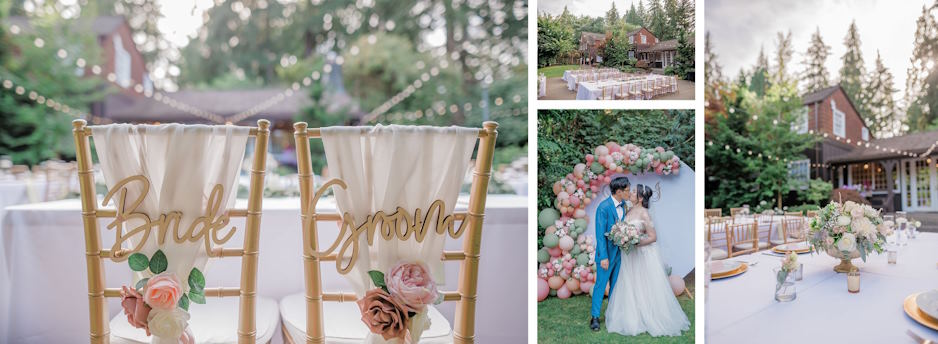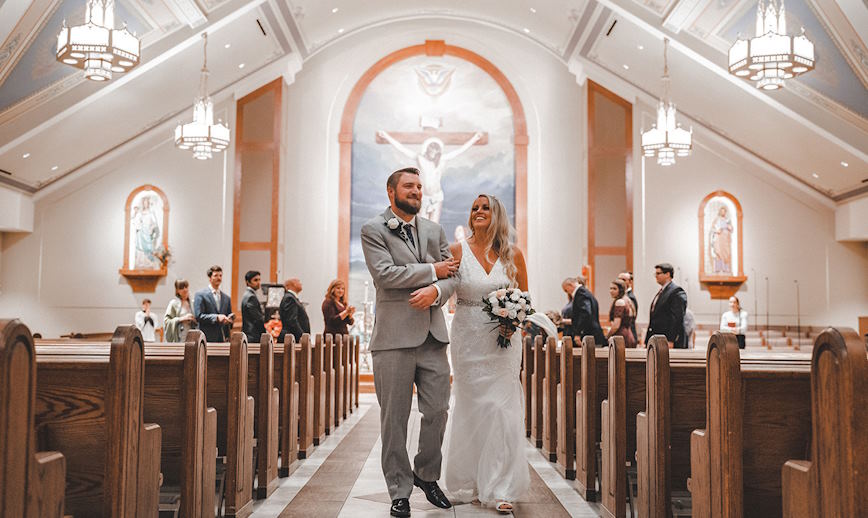Tips for Planning a Last-Minute Wedding
Planning a wedding is often portrayed as a meticulous, time-consuming process, meticulously planned months or even years in advance. However, life doesn’t always adhere to our carefully crafted timelines, and sometimes circumstances call for a last-minute celebration of love. Whether due to spontaneous decisions, unforeseen circumstances, or simply the desire for an intimate affair, planning a last-minute wedding can be a daunting task.
Establishing Priorities
When planning a last-minute wedding, time becomes a precious commodity, making it essential to identify your priorities from the outset.

Identifying must-have elements
Start by making a list of non-negotiables – those elements of your wedding that hold the most significance to you and your partner. Whether it’s the venue, the photographer, or the cake, identifying these must-have elements early on will help you focus your efforts and resources where they matter most. By prioritizing these key aspects, you can ensure that even with limited time, your wedding reflects your vision and values.
Setting realistic expectations
While it’s natural to want your wedding day to be perfect, it’s important to set realistic expectations, especially when planning on short notice. Acknowledge that there may be limitations in terms of available venues, vendors, and resources, and be prepared to be flexible and creative in finding solutions. By embracing the uniqueness of a last-minute wedding and focusing on what truly matters – celebrating your love with those closest to you – you can alleviate unnecessary stress and enjoy the process more fully.
Securing Essential Services
In the whirlwind of planning a last-minute wedding, securing essential services is paramount to ensuring a smooth and memorable event. Here’s how to navigate this crucial aspect efficiently:
Finding available venues and vendors
With time working against you, flexibility is key when it comes to finding available venues and vendors. Start by reaching out to multiple options in your desired location, being upfront about your timeline and willingness to be flexible with dates and packages. Keep an open mind and consider non-traditional venues that may have more availability on short notice. Similarly, explore a variety of vendors, from photographers to caterers, and inquire about their availability and willingness to accommodate your timeframe. By casting a wide net and being adaptable, you increase your chances of securing the services you need to bring your wedding vision to life.
Negotiating contracts efficiently
When time is of the essence, negotiating contracts efficiently becomes a crucial skill. Be prepared to move quickly but thoughtfully, reviewing contracts carefully and negotiating terms that work within your budget and timeframe. Consider enlisting the help of a wedding planner or experienced friend to assist with contract negotiations, ensuring that you’re getting the best possible deals without sacrificing quality or peace of mind.

Handling Legalities
Amidst the excitement of planning a last-minute wedding, it’s crucial not to overlook the essential legal aspects. Here’s a guide to ensuring you’re on the right side of the law:
Obtaining necessary permits and licenses
First and foremost, familiarize yourself with the legal requirements for marriage in your location. This typically involves obtaining a marriage license from the local government office, which may have specific requirements regarding documentation, waiting periods, and fees. Additionally, if you’re planning to host your wedding in a public or private venue, check whether permits are required for the event. By proactively obtaining necessary permits and licenses, you can avoid last-minute headaches and ensure that your marriage is legally recognized.
Completing required paperwork
In the rush of wedding planning, it’s easy to overlook paperwork, but failing to complete required documents can have serious consequences. Take the time to gather and fill out any necessary paperwork, from marriage license applications to vendor contracts. Double-check that all information is accurate and up-to-date to prevent delays or complications down the line. If you’re unsure about which documents are needed, reach out to your local government office or consult with a legal expert for guidance.




 Sheryl, the creative genius behind our wedding events blog, shares expertise and passion for crafting dream weddings. Join them on a journey filled with love, laughter, and happily ever afters.
Sheryl, the creative genius behind our wedding events blog, shares expertise and passion for crafting dream weddings. Join them on a journey filled with love, laughter, and happily ever afters.